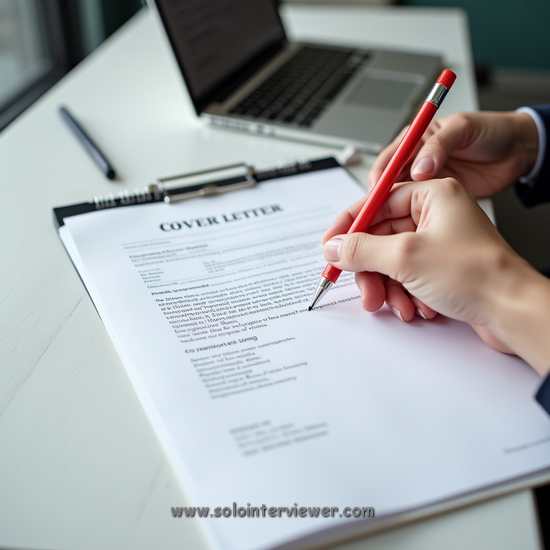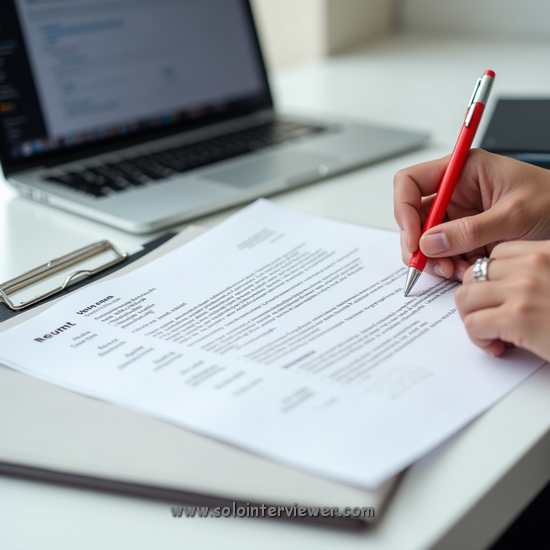- Home
- Interview Prep
Job Interview Preparation
Job Interview Preparation Checklist

Job interview preparation can feel overwhelming, especially if this is your first time going through the interview process. Breaking it down into manageable tasks will help you approach your interview with confidence and professionalism.
The key to effective interview preparation lies in understanding that many of these tasks are universal, they apply to virtually every interview situation you'll encounter throughout your career.
This means you can begin your preparation immediately after submitting your job application, rather than waiting for the interview invitation. In fact, starting early is recommended because once that interview is scheduled, you'll often find yourself with limited time to prepare thoroughly. Companies frequently offer interview slots within just a few days of their initial contact, leaving little room for comprehensive preparation if you wait until receiving the interview confirmation.
By beginning your preparation process early, you avoid the stress and rushed feeling that comes with last-minute cramming. You'll have time to research thoroughly, practice your responses until they feel natural, and refine your presentation. This proactive approach also allows you to identify any gaps in your knowledge or skills that might need attention, giving you time to address them before the actual interview.
Early preparation helps you approach each interview opportunity with a strategic mindset rather than a reactive one. You'll be able to tailor your universal preparation to the specific role and company, rather than starting from scratch each time. This systematic approach not only improves your performance but also builds your confidence as you develop a reliable preparation routine that works for you.
Here's everything you need to know and do before walking into that interview room.
Research and Information Gathering
Company Research

- Research the company's history, mission, and values
- Understand their products, services, and target market
- Learn about recent company news, developments, and achievements
- Identify the company's main competitors and market position
- Research the company culture and work environment
Role-Specific Research
- Thoroughly understand the job description and requirements
- Research typical salary ranges for similar positions
- Identify the key skills and qualifications they're seeking
- Understand how this role fits within the company structure
- Research career progression opportunities in similar roles
Industry Knowledge
- Stay updated on current industry trends and challenges
- Understand the regulatory environment affecting the industry
- Research emerging technologies or methodologies in your field
- Know the key players and thought leaders in the industry
People Research
- Research your interviewers on LinkedIn and company websites
- Understand the backgrounds of team members you might work with
- Learn about the leadership team and their experience
- Identify potential connections or shared experiences
Application Materials Review
Resume and Cover Letter

- Review every detail of your submitted resume for accuracy
- Prepare to explain any gaps in employment or career changes
- Be ready to elaborate on specific achievements and experiences
- Ensure you can provide concrete examples for each skill listed
- Review your cover letter to recall key points you emphasized
Portfolio Preparation
- Organize work samples that demonstrate your capabilities
- Prepare case studies that show your problem-solving approach
- Create a digital portfolio if relevant to your field
- Select references who can speak to your relevant experience
Response Preparation
Common Interview Questions

- Prepare responses to standard behavioural interview questions
- Practice your elevator pitch and "tell me about yourself" response
- Develop examples using the STAR method (Situation, Task, Action, Result)
- Prepare explanations for career transitions or job changes
- Practice discussing your strengths and areas for improvement
Technical Preparation
- Review technical skills and knowledge relevant to the role
- Prepare for potential technical tests or assessments
- Practice explaining complex concepts in simple terms
- Prepare examples of how you've applied technical skills in real situations
Question Preparation
- Develop thoughtful questions about the role and company
- Prepare questions about team dynamics and company culture
- Think of questions about growth opportunities and career development
- Prepare follow-up questions based on your research
Logistics and Practical Arrangements
Interview Details

- Confirm the interview date, time, and location
- Understand the interview format (in-person, video, panel, etc.)
- Know the names and titles of your interviewers
- Clarify the expected duration of the interview process
- Confirm what you need to bring (documents, portfolio, etc.)
Travel and Timing
- Plan your route and transportation method
- Account for potential delays and arrive early
- Test technology for virtual interviews in advance
- Prepare backup plans for transportation or technical issues
Professional Presentation
- Choose appropriate interview attire
- Ensure your appearance is professional and well-groomed
- Prepare multiple copies of your resume and references
- Organize a professional portfolio or folder
- Charge all devices and test video/audio equipment
Final Preparations
Mental and Physical Preparation

- Get adequate rest the night before
- Plan a healthy meal before the interview
- Practice relaxation techniques to manage nerves
- Visualize successful interview scenarios
- Prepare for different interview styles and personalities
Last-Minute Review
- Review your prepared responses one final time
- Confirm all logistical details
- Prepare your questions and talking points
- Review the job description once more
- Set up any materials you'll need for the interview
Follow-Up Preparation
- Plan you thank-you message strategy
- Prepare contact information for sending follow-up communications
- Set expectations for follow-up timing
- Prepare additional materials you might need to send later
By systematically working through each of these job interview preparation areas,
you'll enter your interview feeling prepared, confident, and ready to make a
strong impression.
Remember, thorough preparation is the foundation of
interview success.